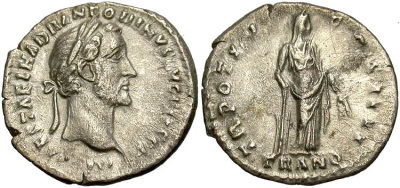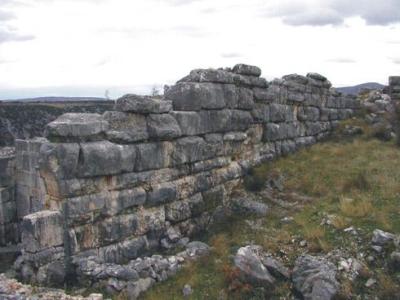The Tranquility of Order
I find myself pondering politics, but not in the typical sense. This was not prompted by any particular thing in current events, but rather by the reflection that I have a very different manner of looking at things. In fact, I suspect my actual political views are nearly incomprehensible without quite a bit of work. For example, I think that the United States ought to establish a single-payer healthcare system. However, this is not because there is a "right" to dentistry or appendectomies. That is foolishness of the first order. Part of the reason for this is you cannot conjure up specialized equipment and personnel merely because they are needed. Health care is contingent upon circumstances that may or may not make it possible, whereas actual human rights are always possible to respect, even when that is not likely. Health care is a matter of public order in a First World country, and that is precisely the sort of thing a government ought to be concerned with.

Tranquillitas Public order or the common good is first and foremost the purpose of government. All else is secondary, and I mean all else. This is the touchstone of statecraft in the Roman Catholic tradition, often referred to as Augustinian. Despite being named after a saint, this tradition is not limited to Catholics, and can be found in many cultures.The reason this tradition is named after St. Augustine is this passage from the City of God, “the peace of all things lies in the tranquility of order; and order is the disposition of equal and unequal things in such a way as to give to each its proper place” (XIX.13)
This tradition holds that the state exists in order to achieve goods that are not otherwise possible. There is an actual kind of human flourishing that is only possible in the just state. To encourage this is the aim of good government. This is part of what Aristotle meant when he said that "man is a political animal." (Politics 1253 a3) In fact, he meant that we are actually less than human if we do not live in community together under a rule of law. The sad example of feral children shows the result if this dictum is ignored.
There are also things in the Augustinian tradition that precede the state. An example is the authority of parents over their children. Modern states even acknowledge this, although sometimes in backhanded fashion. Even when the state takes away the children of an unfit parent, the only possible justification is to correct a deficiency of justice that is pre-political in origin. States that attempt to interfere with this natural relationship do so at their peril.

Cyclopean wall, Dalmatia Public order is a transparent good in many First World nations. It is simply taken for granted, but in fact it is corruptible and can be destroyed through neglect. One of the benefits of the study of history (especially metahistory, the ponderous name for the rise and fall of civilizations) is that we can see that it is possible to even forget what used to be possible. The Greeks of 1000 BC referred to the fortifications of their ancestors as Cyclopean walls, because they did not consider such massive works to be humanly possible. A more modern example of the downfall of public order can be seen in England, where the young men have begun to prefer drinking and hooliganism to careers and families, such that the crime rate in England is 40% higher than America. The bigger surprise, is how quickly this change occured. England was long among the most law-abiding of nations, a bastion of sturdy yeomanry noted more for bland quisine than thuggery. Civilization is fragile and deserves our support.
Tranquillitas ordinis is the peace that arises naturally from a just social order. This must be tempered by the realization, which comes from political philosophy, not statecraft, that no political order can ever embody justice perfectly. Politics cannot be the highest thing, its true purpose is to foster the highest things. To that end, ordinary good governance is the thing that we need most from our government. This may be difficult, because it is so ordinary, but we need roads and sidewalks and good schools. We also need the assurance that arises from just laws that we can transact business in peace, and trust our neighbors not to try to cheat us. These are the things that government ought to do, and everything else ought to be seen as a distraction.



Comments ()